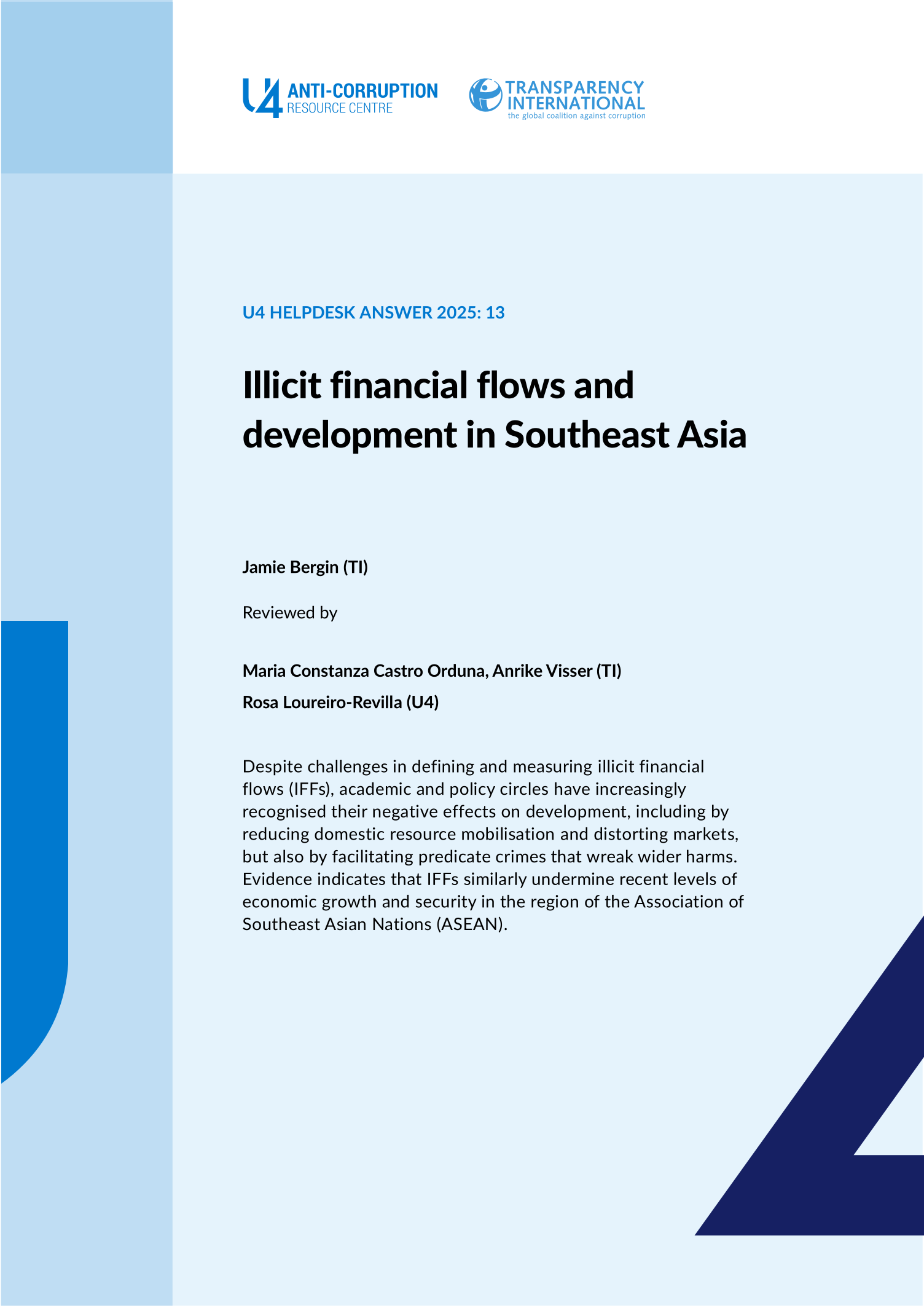Main points
- Illicit financial flows (IFFs) have been defined as ‘financial flows that are illicit in origin, transfer or use, that reflect an exchange of value and that cross-country borders’. IFFs may originate from corruption, or from a wider range of illicit activities, such as human trafficking and tax evasion.
- The inclusion of Target 16.4 in the 2030 Agenda for Sustainable Development marked global recognition of IFFs as a development issue. However, a lack of consensus on how to define and measure IFFs have resulted in incomplete national data collection, making it difficult to conclusively measure their effects on development outcomes.
- Nevertheless, studies relying on proxy estimates of IFFs have largely concluded that they have negative effects on economic growth and can constitute a significant decrease in the financial resources available to fund development needs such as education and health. Furthermore, IFFs often constitute the proceeds of crimes which have wider impacts such as insecurity and damage to the environment.
- Compared to other regions, such as sub-Saharan Africa, there has been less academic and institutional attention on IFFs and development in the Asia-Pacific region, including subregions such as Southeast Asia.
- Despite this, evidence suggests the recent economic, political and social development of the ASEAN region is undermined by high levels of IFFs, much of which is driven by common regional trends such as the recent growth of special economic zones, cash-based economies, the rise of transnational organised crime syndicates, the presence of porous borders and established smuggling routes for the trafficking of narcotics, wildlife products and other goods, as well as the complicity of state actors in some countries.
- There is a growing body of literature and institutional reports on predicate crimes and typologies of IFFs movements for each of the ten ASEAN member states. While the implications for development outcomes are often underexplored, there are some clear cases of significant negative impacts. For example, the illicit timber trade has triggered rapid deforestation in Cambodia, Indonesia and Myanmar, while a large-scale corruption and money laundering scheme led to fiscal instability in Malaysia.
- Several regional bodies, such as the UNODC Regional Office for Southeast Asia and the Pacific and the United Nations Economic and Social Commission for Asia and the Pacific, work on IFFs and development or tangential issues across Southeast Asia and the Asia-Pacific more widely. Some of these have led emerging efforts to increase national-level data collection and capacities to counter IFFs.



